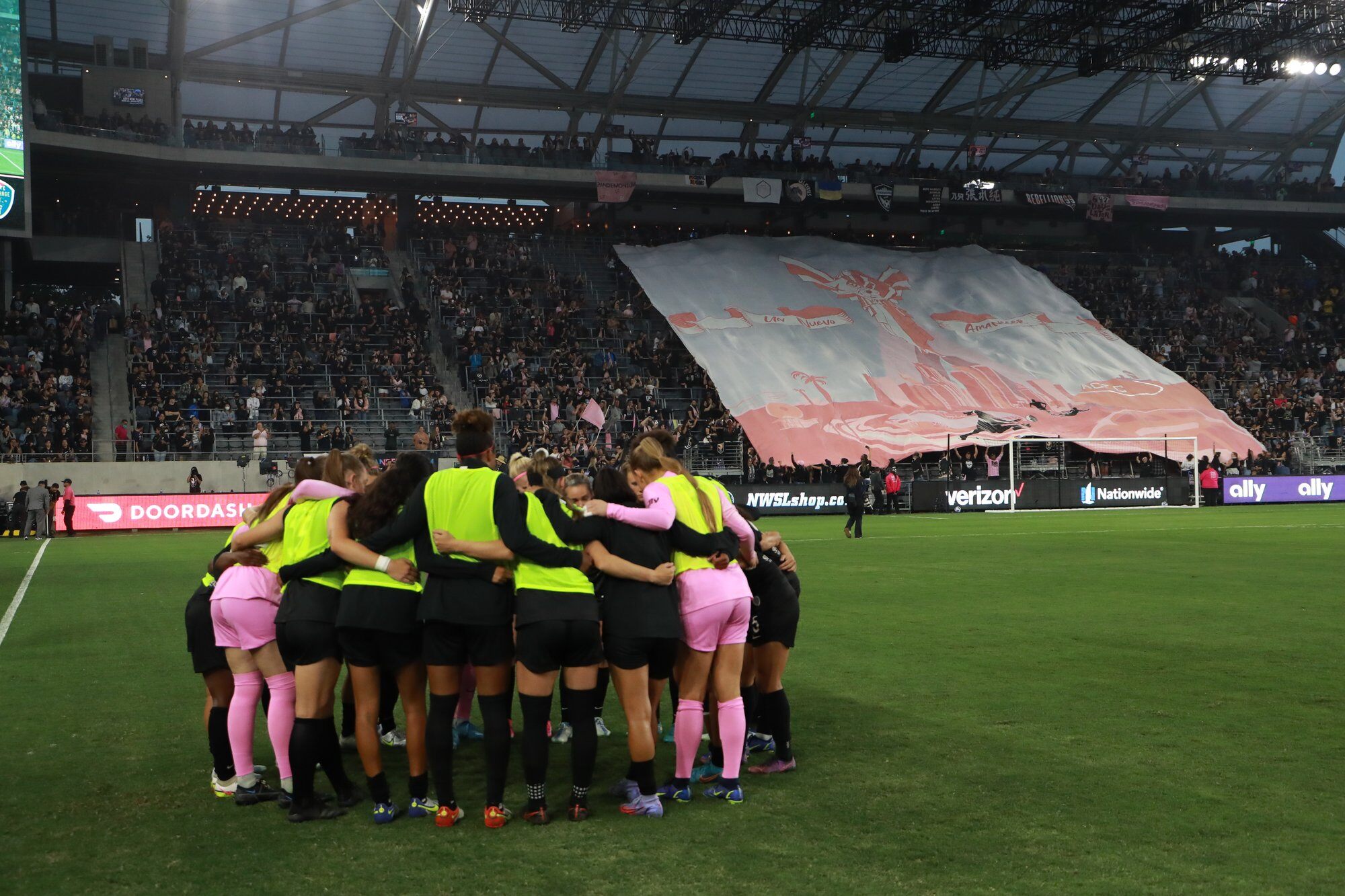

A new dawn.
That's what last night's tifo read—it's also what 22,000 supporters at a sold-out Banc of California Stadium witnessed as Angel City and North Carolina kicked off NWSL's 10th season. Or, as tennis legend, women's sports pioneer, and ACFC founding investor Billie Jean King said before the game, 'it's a tipping point tonight.'
As much as a tipping point, the night was proof of the club's central concept: if you invest in women's sports, people will show up. It's something founding investor and two-time World Cup winner Julie Foudy knew 20 years ago—something the rest of the world is just catching up with.
'Forever, we were like, 'you know, there's this amazing upside. You guys don't see it yet, but I'm telling you, it's going to be huge,'' she said. 'We should have been here a long time ago... I'm thrilled that we're finally there, because this is the manifestation of everything we had hoped for and dreamed about.'
For everyone present—the players, the supporters, the owners—this was a long time coming. The NWSL is the third women's professional league in the US, and the only one to survive for longer than three years. Early on, the claim was that the two previous leagues, the Women's United Soccer Association (WUSA) and Women's Professional Soccer (WPS) had failed because they'd aimed too high; they'd spent too much and tried to sell too many seats too quickly. The NWSL started small and aimed to grow slowly.
The league has indeed grown gradually over the 10 years of the league's existence, but when we look back on this moment in another 10 years, Angel City's emphatic entrance is going to mark the start of a new chapter. This club, and the Los Angeles community that showed up for it on Friday, is showing what's possible when women's sport gets the investment it deserves.
'When you get this type of ownership,' said Foudy, 'that's female-majority owned, and they think about what's possible rather than, 'hey, just be grateful you have a team'? It's a complete shift in mindset.'
Fellow founding investor Mia Hamm, Foudy's longtime USWNT teammate, said the night was a testament to 'The belief in each other, and the belief that this team, this sport, belongs in Los Angeles. And that it belongs in a stadium like this.'
Sure enough, the crowd on Friday wasn't just big and loud. While the environment was welcoming to old and new fans alike, this was a crowd that knew soccer. 'It's going to be our fortress,' said Angel City captain Ali Riley after the game. 'It’s going to be really hard to get any points here. Just hearing the fans after a good tackle or a good pass—they understand the game. This community loves soccer.'
For Riley especially, the night was emotional. 'I have waited for a moment like this for 12 years,' she said after the game. A Los Angeles native, Riley was in her senior year at Stanford when the last top-flight women's club in the region, the WPS LA Sol, played its first—and last—season in 2009.
'I had hoped to get drafted to the LA Sol,' she continued. 'The team folded before I had the chance. I’ve been all over the world, and to be here with my parents watching the game, to feel the love, the support—I think we proved anything is possible in women’s sports... I'll never forget this.'
None of it, said Foudy, would be possible without an ownership group and a front office willing to put in the work. 'When there's no marketing budget, and there's no staffing and there's no investment—when you don't water that garden—it's not going to grow,' she said. 'We [used to] say that over and over: 'it's not blooming because you're not watering it.' You've got to nurture it and invest in it and actually spend some time on it.'
King, who's been fighting for 50 years for women's sport to get the recognition and investment it deserves, said this moment wasn't just about soccer.
'It's about recognition,' she said. 'It's about people watching and being empowered. These women athletes are going to empower everyone, not just girls. When a woman leads, she leads for everyone.'





